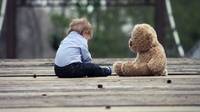
The fourth thing that happens at the time of conception is the establishment of the new child’s ordinal position among siblings. While this may change within a year or two after birth, the child’s ordinal position remains fairly static from then on. For example, a second-born child may be the “baby of the family” or hold a last-born ordinal position for a year or more after birth but then be replaced by a newly born sibling. Shifting from the “baby-of-the-family” position to a middle-born’s position may be upsetting for a short time, but young children or even babies tend to adjust to these changes.
There is evidence to conclude that it is not ordinal position per se that leaves its mark on the individual’s personality and patterns of behaviour but rather circumstances in life related to this position – such as the role the individual plays in the family and the treatment he or she receives from significant family members and their attitudes. Since roles, attitudes, and treatment are far more likely to persist than to change, the individual constantly receives reinforcements which, in time, result in firmly established habits.
Forer has described the effects of ordinal position on the individual in the following way:
Your place in the family strongly influences how you cope with people and the world… Much of a child’s development depends on interactions with siblings… All members of a family force on one another certain patterns of behaviour as they interact in meeting their needs… It is in this way… that the position in the family leaves an indelible stamp on a person’s life style.
Bigner has described specifically how being a second-born or a firstborn in a family affects the child’s development. He contends, “A second-born child plays a ‘satellite’ role in many of his interactions with the older, since the firstborn may act as the natural leader of the siblings in the family constellation”.
A firstborn girl, for example, who is expected to help with the housework and with the care of young siblings may resent the fact that the boys in the family have fewer domestic duties and are granted privileges and given opportunities denied to her. A second or later-born boy may resent being “bossed” by an older female sibling or being treated as the “baby of the family” while his female siblings are given more privileges and freedom than he is given.
Some individuals enjoy the role they are expected to play as a result of their ordinal position while others do not. A firstborn child, for example, may resent the pressures of parents to live up to their expectations or having to act as a model for younger siblings. One the other hand, the first-born may derive personal satisfaction from serving as a role model for younger siblings.
Some Common Characteristics Associated with Ordinal Position
Firstborns
- Behave in a mature way because of association with adults and because they are expected to assume responsibilities.
- Resent having to serve as models for younger siblings and having to assume some of their care.
- Tend to conform to group wishes and pressures and to be suggestible as a carryover of conformity to parental wishes.
- Have feelings of insecurity and resentment as a result of having been displaced as the center of attention by a second-born sibling.
- Lack dominance and aggressiveness as a result of parental overprotectiveness.
- Develop leadership abilities as a result of having to assume responsibilities in the home. But these are often counteracted by tendencies to be “bossy.”
- Usually are high achievers or overachievers because of parental pressures and expectations and a desire to win back parental approval if they feel they are being replaced by younger siblings.
- Are often unhappy because of insecurity arising from displacement by younger siblings and resentment at having more duties and responsibilities than younger siblings.
Middle-borns
- Learn to be independent and adventuresome as a result of greater freedom.
- Become resentful or try to emulate the other’s behaviour when compared unfavourably with an older sibling.
- Resent privileges older siblings are granted.
- Act up and break rules to attract parental attention to themselves and take it away from older or younger siblings.
- Develop a tendency to “boss,” ridicule, tease or even attack younger siblings who get more parental attention.
- Develop the habit of being underachievers as a result of fewer parental expectations and less pressure to achieve.
- Have fewer responsibilities than firstborns – which they often interpret as meaning they are inferior. This then discourages the development of leadership qualities.
- Are plagued by feelings of parental neglect. This then encourages feelings of inadequacy and inferiority which, in turn, encourage development of behaviour disorders.
- Turn to outsiders for peer companionship – but this often leads to better social adjustments than those made by firstborns.
Last-borns
- Tend to be willful and demanding as a result of less strict discipline and “spoiling” by family members.
- Have fewer resentments and greater feelings of security as a result of never being displaced by younger siblings.
- Are usually protected by parents from physical or verbal attacks by older siblings and this encourages dependency and irresponsibility.
- Tend to underachieve because of fewer parental expectations and demands.
- Experience good social relationships outside the home and are generally popular but infrequently leaders because of lack of willingness to assume responsibilities.
- Tend to be happy because of attention and “spoiling” from family members during early childhood.


















